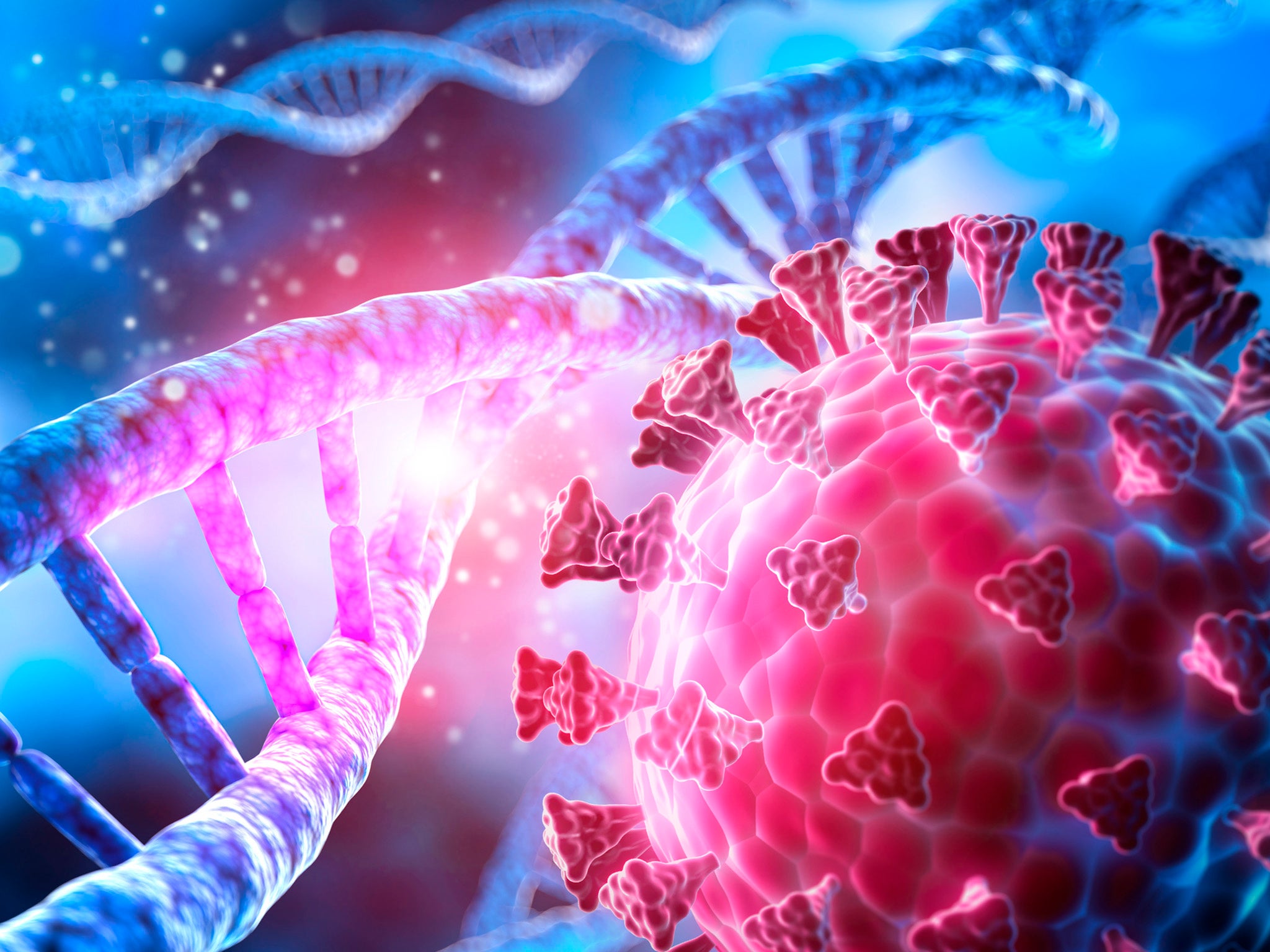Severe Covid-19 linked to more than 1,000 genes as experts look at why healthy adults suffer
Results could lead to test which shows whether serious illness from virus was likely from birth, writes Liam James


Scientists have identified more than 1,000 genes which may put people at higher risk of serious illness from Covid-19.
The genes were found to mostly affect the function of two kinds of immune cells: Natural killer (NK) cells and T-cells.
The findings of the study could help create a test that can tell whether a person is genetically predisposed to severe Covid-19 symptoms, lead author Professor Michael Snyder from Stanford University said.
A team of scientists from Stanford and the University of Sheffield used a machine learning tool called RefMap to analyse results from a global data set called the Covid-19 Host Genetics initiative, which records genetic data of critically ill coronavirus patients.
The scientists looked for genetic variants that were more common in around 5,100 patients who became seriously ill or died, compared with data from elsewhere on one million people who never tested positive for the virus.
They identified 1,370 genetic mutations that were either recurrent or notably absent in patients who developed a severe illness. The mutations came up again when checked against two similar data sets.
Dr Johnathan Cooper-Knock, co-author and neuroscience lecturer at the University of Sheffield, said: “During the research we discovered the genetic architecture underlying coronavirus infection, and found that these 1,000 genes account for three-quarters of the genetic drivers for severe Covid-19.
“This is significant in understanding why some people have had more severe symptoms of Covid-19 than others.”
The researchers also wanted to find which cells were affected by the genetic mutations. They looked at genes which were normally active in 19 different cells in healthy lungs, which led them to discover that the genetic mutations most commonly affected NK and T-cells.
The study is one of the first to link coronavirus-associated genes to specific biological functions, though its results require further study before they can be considered conclusive.
Prof Snyder said: “Our findings lay the foundation for a genetic test that can predict who is born with an increased risk for severe Covid-19.
“Imagine there are 1,000 changes in DNA linked to severe Covid-19. If you have 585 of these changes, that might make you pretty susceptible, and you’d want to take all the necessary precautions.”
It was already known that age, BMI and underlying health conditions influenced how severely a person was likely to be infected with Covid-19 but recently scientists have been catching glimpses of the genetic markers that drive the illness.
A study in March from the global genetics study consortium GenOMICC identified 16 genetic mutations that similarly put people at higher risk of severe illness from the virus.
The authors said not everyone will have all the DNA changes identified so some people will have a greater or lesser tendency to have severe outcomes.
The latest study was published on Wednesday in Cell Systems.
Join our commenting forum
Join thought-provoking conversations, follow other Independent readers and see their replies
Comments
Bookmark popover
Removed from bookmarks